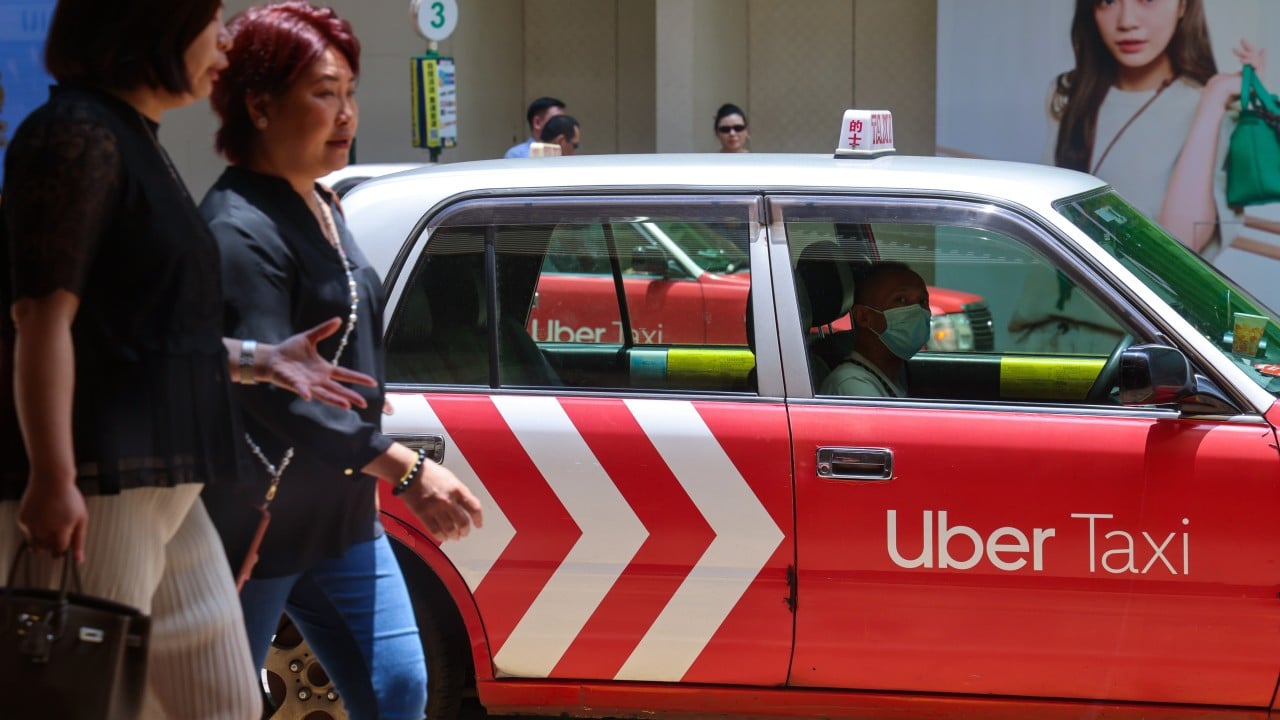Hong Kong’s transport chief has brushed aside concerns over the time length of a 12-month commuter needs study intended to shape regulations for ride-hailing services such as Uber, arguing the research is necessary to keep authorities informed.
Secretary for Transport and Logistics Lam Sai-hung also said on Sunday that the proposed premium taxi fleets, which are intended to improve service quality, could start operating this year, as authorities planned to issue up to five licences this month.
Sunday also marked the launch of an HK$2 (26 US cents) increase for taxi starting fares, with the policy change also seeing the flag-fall rate for urban cabs go up to HK$29, with those in the New Territories reaching HK$25.50 and Lantau ones went to HK$24.
The Transport Department earlier this month announced long-anticipated proposals to regulate ride-hailing services, thrusting the city’s taxi industry back into the spotlight and raising concerns about its slow adoption of e-payments.
The proposals include conducting a 12-month study on commuter needs before rolling out a regulatory framework in the second half of 2025.
Lam had also expressed hopes that relevant legislation would be completed within his term, which will end around mid-2027.
But critics have argued that the timeline for the regulatory effort appeared to be slow going.
Asked on a radio show if the proposed length of the research period was excessive, Lam replied: “We need to study supply and demand for online hailing services. Without thorough research, we don’t have a say on the matter.”
The minister said the department would conduct surveys asking commuters about their transport habits, while also looking at overseas solutions to regulating ride-hailing services.
“We also need to consider Hong Kong’s uniqueness. For example, you will not see as many taxis on the streets in foreign countries compared with this city,” he said.
Hong Kong’s public transport network currently accounts for about 90 per cent of all local commuter activity, which comprises taxis, trains, buses, minibuses, trams and ferries.
Under the current system, vehicles offering paid transport services in Hong Kong must have a hire-car permit, the number of which is capped at 1,500. Only 1,115 permits have been issued by the government as of 2021.
Hong Kong has 46,000 taxi drivers, with 18,163 cabs on the road.
Uber Hong Kong’s general manager said in June that its platform had more than 10,000 active drivers each month.
Uber has been operating in the city since 2014. The company has faced accusations that a number of its drivers are operating without private hire-car permits, fuelling a long-standing dispute with taxi drivers.
In an incident earlier this year, taxi drivers carried out “undercover operations” to report Uber drivers to the police.
Last week, Singapore-based Tada declared its planned foray into Hong Kong and said it would offer a zero-commission ride-hailing platform by the end of this year.

In a wide-ranging interview last week, transport chief Lam told the Post that authorities would also study issuing new licence types for online ride-hailing services and expanding hire-car permit quotas.
He also warned that platforms which failed to meet regulatory requirements would “be out of the game”.
While appearing on Sunday’s radio show, Lam touched on plans to launch premium taxi fleets as early as this year. He said authorities planned to issue up to five licences for the fleets this month.
He said commuters would be able to book the service online or hail such cabs on the street. Taxis in the fleets could also feature their operators’ logos on the cars to boost recognition, he added.
Lam said authorities would leave the decision about the cost of booking fees up to the industry.
The premium taxi fleets will be subject to stricter requirements than regular cabs, including the provision of online booking channels and e-payment options, as well as the installation of cameras in vehicles.
Vehicles joining the fleets must also be no older than three years.


